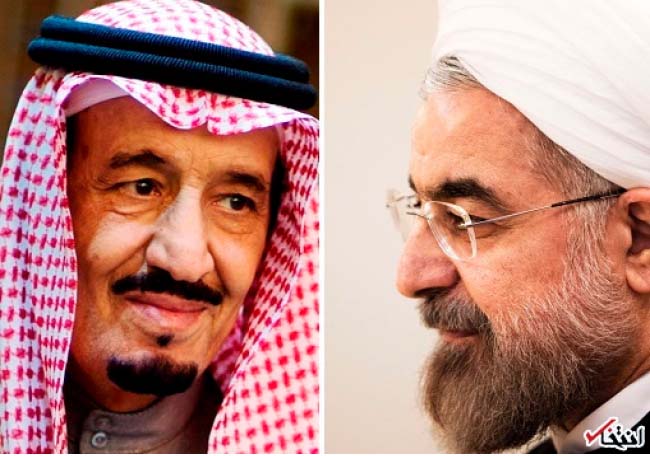As tensions between Iran and Saudi Arabia are escalating, the Afghan government issued a statement on Friday, asking the two countries to resolve their differences through talks. The statement said that the Afghan government is deeply concerned over the recent diplomatic tensions between Saudi Arabia and Iran. The statement on Afghanistan’s stance over the diplomatic crisis between the two Muslim powers is coming while many Muslim nations have chosen to back one of the sides of the dispute. The diplomatic crisis emerged after Saudi Arabia executed a Shia cleric and, in response to the execution, Iranian protestors stormed Saudi’s embassy and general consulate in Tehran and Mashhad respectively.
Since the two incidents, the developments have been too quick and risky for the Muslim world. In response to the breach of Saudi diplomatic premises, the Saudi kingdom along with many of its allies have cut or degraded ties with Iran, while many other countries have objected to Iran’s failure to protect Saudi Arabia’s embassy and consulate. Iran in turn has accused Saudi Arabia-led coalition engaged in the Yemen bombings of striking the vicinity of Iran’s embassy in the capital Sana. Some other countries like Afghanistan have reacted to the crisis cautiously, avoiding explicitly taking one of the sides. Anxious over the impacts of the tensions over regional crises such as the wars in Syria, Iraq and Yemen, the Western powers have urged both countries to avoid escalation of the tensions.
The ongoing tensions are a result of a long-running rivalry between Iran on one side and Saudi Arabia and its regional allies on other side to dominate the region. The long-lasting rivalry between the two major powers of the Sunni and Shia blocks has roots in the historic rivalry between the Persians and the Arabs. The emergence of Iran’s Islamic revolution brought the rivalry into a new phase as the Western powers and the Arab nations were trying to curb Iranian revolution and the country’s ambitions in the region. As the bitter rivalry continued, the US invasion of Iraq and Afghanistan further helped Iran to have its enemies eliminated and extend its influence in the region particularly the Arab world. However, the start of the wave of the so-called Arab spring and development of civil wars in some Arab countries both helped Iran to extend its influence in Arab world. The civil wars in Yemen and Syria have pushed the two countries’ rivalry to the verge of a nearly military confrontation.
Relying mainly on the US to counter Iran’s influence, Saudi Arabia gradually became disillusioned with the US leadership of the West-Arab block.
In recent years, the Saudis have taken more aggressive approach in countering Iran’s influence in countries such as Syria, Yemen and Iraq. Since the recent storming of Saudi’s diplomatic premises by Iranian protestors, the Saudi Arabia is trying to further isolate Iran through cutting diplomatic ties between Tehran and many of the Muslim countries. Iran’s government under moderate leader Hassan Rouhani, who had chosen to improve relations with the Arab world, is attempting to ease the burden of the tensions over its diplomacy machine. Iranian government has found it stuck in one of its worst diplomatic tensions with the outside world since European countries mass cutting of ties with Iran.
Except the repercussions of the tensions for Tehran and Riyadh, the simmering tensions between Iran and Saudi Arabia is feared to have extensive impacts over other crises in the region and the Muslim world as a whole. There have been efforts going on between major world and regional powers in the global stage to resolve the Syrian crisis and end the bloodshed in the country. The United Nations have set an ambitious roadmap for holding elections in the country and bringing a new government. The rising tensions between Iran and Saudi are now threatening the international efforts for resolving the bloodiest civil war going on for the time being.
While many Arab countries have severed or degraded ties with Iran, some powerful Muslim nations have avoided taking sides in the dispute. Despite having their own differences with Iran, Pakistan, Turkey and Egypt have avoided joining the joint action of Saudi Arabia and other Arab countries. As Saudi Arabia is backed by some Arab nations in the dispute, some of Iran’s regional allies, including the civil-war battered Syrian government have backed Iran. The rising tensions between the two blocks have developed a complete stalemate in a region embroiling with numerous crises and bloodiest conflicts.
Afghanistan’s move of requesting for talks between Tehran and Riyadh and expressing concerns over the rising tensions between Saudi Arabia and Iran is coming as an expedient move aimed at avoiding taking side or affecting relations with one of the two powerful countries. Despite Afghanistan’s previous stance of backing the Saudi Arabia over the country’s stance in the Yemen conflict, the recent statement from the Afghan government was largely expected. It was obvious beforehand that the Afghan government would not be able to sustain its leanings towards Saudi Arabia in event of more severe circumstances in the politics of the Muslim world.
Given the most recent developments, it would be prudent of the Afghan government to maintain close relations with all neighboring and regional Muslim countries, including the two rival Iran and Saudi Arabia.
There is the potential for the Middle Eastern crises to further deteriorate and develop more precarious not only for the Muslim states but for the whole world. It would in the best interests of Afghanistan to not only maintain but to further promote friendly relations with the neighboring countries and regional and Muslim powers. A sustainable policy of positive approach to external developments in a region replete with crises would best serve Afghanistan’s long-term interests, and would help resolving the country’s own crisis.

